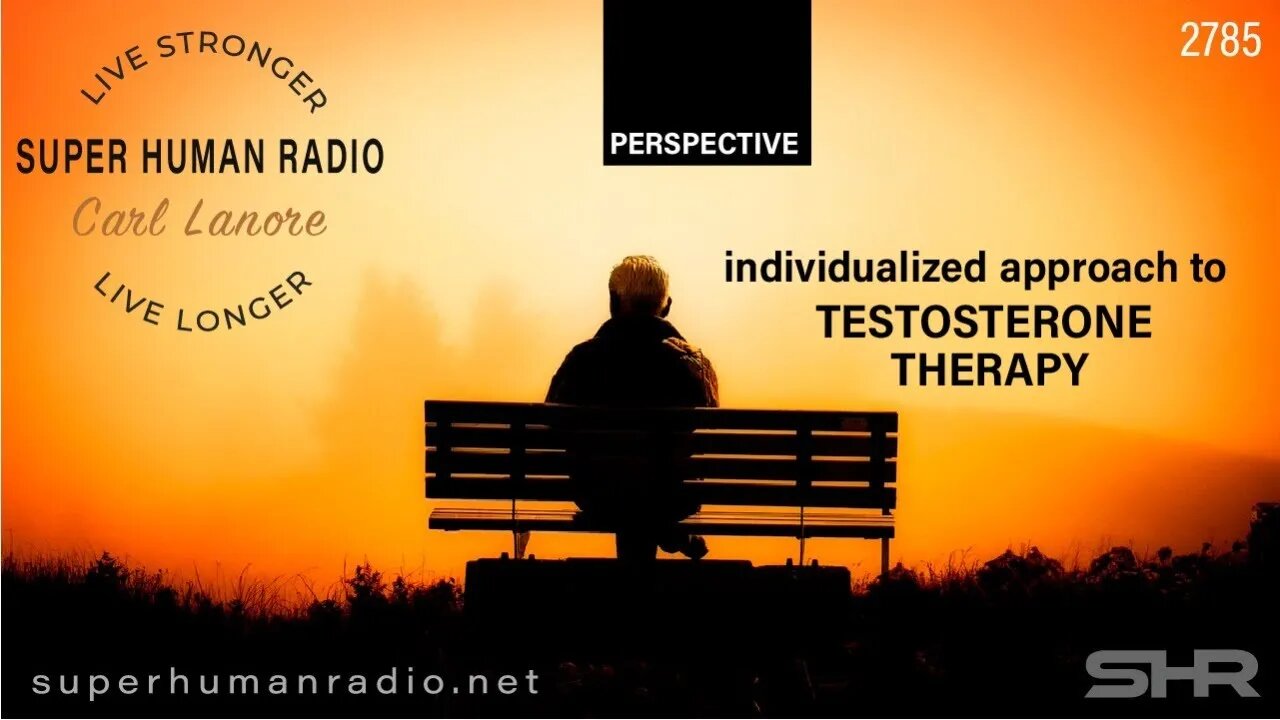Premium Only Content

Testosterone replacement in aging men: evidence-based patient-centric study
Testosterone replacement in aging men: evidence-based patient-centric study Daniel Bossa
The deluge of advertisements marketing erectile dysfunction medications and testosterone products has empowered many older men to seek medical help for their sexual and genitourinary problems. As a reflection of this historical transition toward increased attention on men’s sexual health, men’s health clinics have sprung up across the United States; concomitantly, testosterone prescription sales increased from about $100 million US dollars in the year 2000 to nearly $2.7 billion in 2013.
Today, a majority of testosterone prescriptions are written for men aged 40–64 years (1) even though testosterone is not approved by the US Food and Drug Administration (FDA) for age-related decline in testosterone. Citing the lack of data on long-term benefits and risks of testosterone treatment in older men with age-related decline, the FDA has sounded alarm over the growing off-label use of testosterone. Experts have debated whether prescribing testosterone to older men with testosterone deficiency is disease mongering or whether subsets of older men with testosterone deficiency might benefit from testosterone treatment. Fortunately, several recent randomized controlled trials (RCTs) have provided important information on the efficacy and short-term safety of testosterone treatment in older men. This Viewpoint synthesizes data from epidemiologic studies and RCTs and offers a perspective on a patient-centric approach to treatment decision in older men with testosterone deficiency based on an individualized assessment of benefits and risks.
-
 37:36
37:36
Super Human Radio Podcast
1 year agoThe Magic of Proper Stress Management
196 -
 36:13
36:13
The Why Files
1 month agoAlien Implants Vol. 1: Devil’s Den UFO Encounter: What Was Found Inside Terry Lovelace?
31.7K36 -
 4:23:49
4:23:49
FreshandFit
11 hours agoIsrael v Palestine Debate! Respect A Man If He Says No Or Yes To A Girl's Trip?
147K169 -
 2:05:33
2:05:33
TheSaltyCracker
13 hours agoTech Bros try to Hijack MAGA ReeEEeE Stream 12-27-24
276K496 -
 2:01:25
2:01:25
Roseanne Barr
18 hours ago $38.56 earnedJeff Dye | The Roseanne Barr Podcast #80
125K65 -
 7:32
7:32
CoachTY
16 hours ago $11.74 earnedWHALES ARE BUYING AND RETAIL IS SELLING. THIS IS WHY PEOPLE STAY BROKE!!!
114K8 -
 1:01:00
1:01:00
Talk Nerdy 2 Us
13 hours ago💻 From ransomware to global regulations, the digital battlefield is heating up!
36.1K1 -
 3:00:24
3:00:24
I_Came_With_Fire_Podcast
15 hours agoHalf the Gov. goes MISSING, Trump day 1 Plans, IC finally tells the Truth, Jesus was NOT Palestinian
82.3K35 -
 4:11:49
4:11:49
Nerdrotic
18 hours ago $40.96 earnedThe Best and Worst of 2024! Sony Blames Fans | Batman DELAYED | Nosferatu! |Friday Night Tights 334
201K36 -
 7:55:51
7:55:51
Dr Disrespect
22 hours ago🔴LIVE - DR DISRESPECT - WARZONE - SHOTTY BOYS ATTACK
244K33